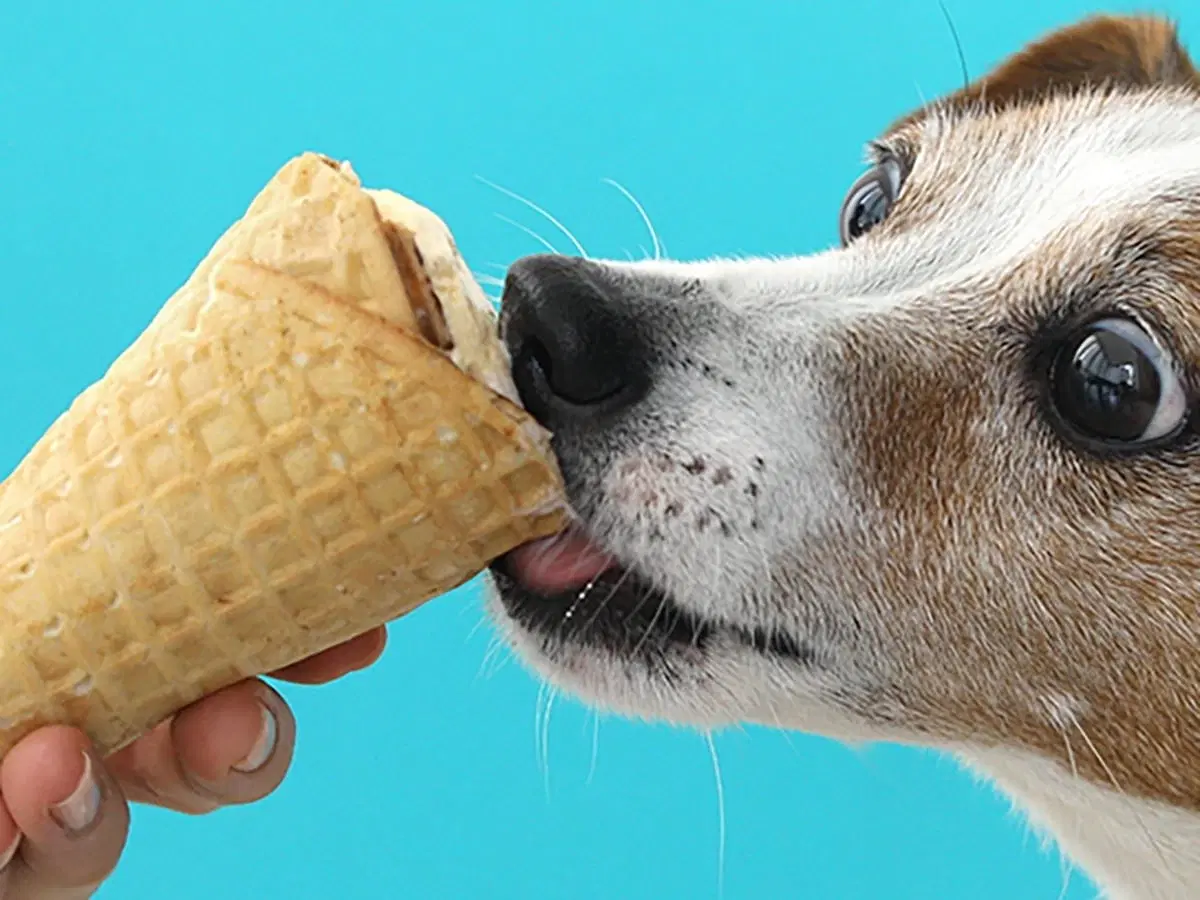Ice cream is a beloved treat enjoyed by people worldwide, but can our canine companions indulge in this frozen treat? In this article, we will delve into the science behind why ice cream is not an ideal food for dogs, provide expert opinions from veterinarians, and offer alternative healthy treats that your furry friend will love.
Can Dogs Eat Ice Cream?
While small amounts of ice cream may not cause immediate harm, there are several potential health risks associated with feeding dogs ice cream.
Should I Give My Dog Ice Cream?
High Sugar Content: Ice cream is loaded with sugar, which is unhealthy for dogs in large quantities. Excessive sugar can contribute to weight gain, obesity, and other health problems like diabetes.
Fat Content: Ice cream is also high in fat, which can be difficult for some dogs to digest and can lead to pancreatitis in severe cases.
Harmful Ingredients: Some ice cream flavors and toppings contain ingredients that are harmful to dogs, such as chocolate, xylitol, and artificial sweeteners. These can cause serious health problems or even be fatal.
Are Dogs Lactose Intolerant?
While puppies have the enzyme they need to break down milk, once they are weined their bodies naturally produce less lactase.
Dogs, like many other mammals, can be lactose intolerant. They can lack the enzyme lactase, which is responsible for breaking down lactose, the sugar found in milk. Consuming dairy products, including ice cream, can lead to digestive issues such as gas, bloating, diarrhea, and vomiting. These symptoms can range from mild to severe and can cause discomfort and distress for your dog.
How Does Sugar in Ice Cream Affect Dogs?
Ice cream is not only high in lactose but also packed with sugar. Excessive sugar consumption can lead to weight gain, obesity, and other health problems in dogs, such as diabetes and pancreatitis. Overweight or obese dogs are at an increased risk of developing joint problems, heart disease, and other chronic health conditions.
What is Xylitol? Why Is It A Threat?
Some ice cream flavors, particularly those with chocolate, may contain xylitol, a sugar alcohol that is highly toxic to dogs. Even small amounts of xylitol can cause a rapid drop in blood sugar levels, leading to seizures, liver failure, and even death. If you suspect your dog has consumed xylitol, seek immediate veterinary attention.
Veterinarians strongly advise against feeding dogs ice cream regularly. Dr. Tawnia Shaw DVM, avoid giving your pet any sugar-free dairy treats. “Many sweeteners, like xylitol, are toxic to our pets and can cause life-threatening drops in blood sugar.”
Expert Insights From Spot
While it can be fun to share our favorite foods with our pets, pet parents should keep in mind that sometimes, eating human food can upset a pet's stomach. Pet parents should keep an eye on what their pets eat, and do their research before sharing their favorite snacks with their dogs. Being mindful of what treats we share with our pets can help keep them healthy while helping pet parents avoid unnecessary vet bills.
What Are The Healthier Alternatives?
While ice cream may be tempting to share with your dog, there are plenty of healthier alternatives that will satisfy their sweet tooth without compromising their health. Here are a few suggestions:
Frozen fruits: Freeze chunks of fruits like blueberries, strawberries, or bananas for a refreshing and nutritious treat.
Carrots: Carrots are a great source of beta-carotene, which is converted to vitamin A in dogs. Freeze them for a crunchy and healthy snack.
Apples: Apples are high in fiber and provide essential vitamins and minerals. Remove the seeds and core before freezing.
Yogurt: Plain, unsweetened yogurt is a good source of protein and calcium. Choose varieties with live and active cultures for added digestive benefits.
Homemade dog treats: You can find numerous recipes for healthy homemade dog treats using ingredients like peanut butter, oats, and pumpkin.
Key Takeaways
While an occasional bite of ice cream may not cause immediate harm, it is not a healthy food for dogs and should be avoided regularly. The high lactose, sugar, and fat content can lead to digestive issues, weight gain, and other health problems. Instead, opt for healthier alternatives that provide your furry friend with the nutrients they need without compromising their well-being.

As Spot’s resident cat enthusiast, I am dedicated to researching and sharing information that helps pet owners take the best care of their pets. Pet ownership comes with it’s share of challenges, but my goal is to help make this journey easier.
*Jan 2019 to Aug 2024 administrator claims data.
"Can dogs eat ice cream?" PetMD, 3 Apr. 2023, https://www.petmd.com/dog/nutrition/can-dogs-eat-ice-cream
Meyers, H. "Can dogs eat ice cream?" American Kennel Club, 2022, Nov. 8, https://www.akc.org/expert-advice/nutrition/can-dogs-eat-ice-cream/
The information presented in this article is for educational and informational purposes only and does not constitute or substitute for the advice of your veterinarian.












